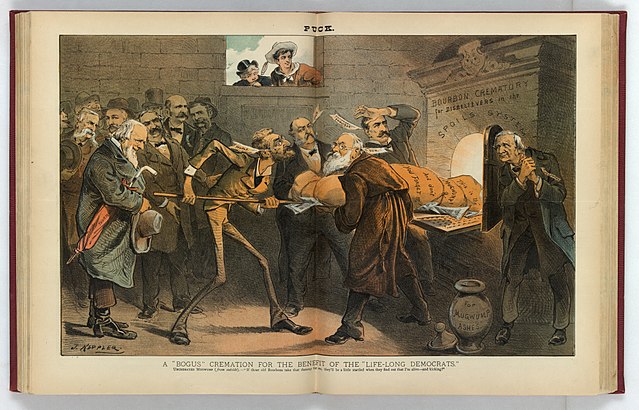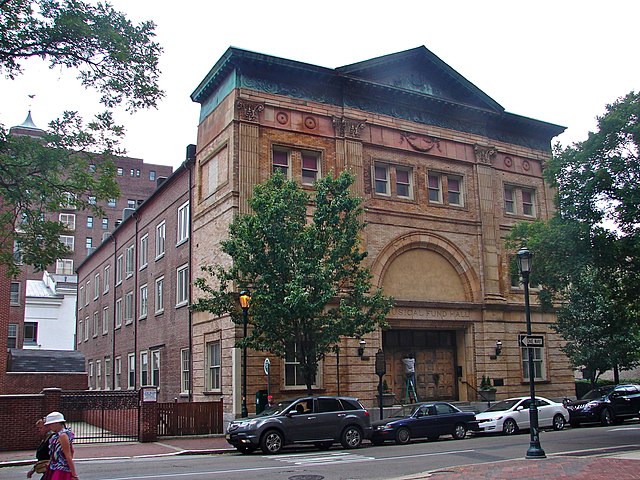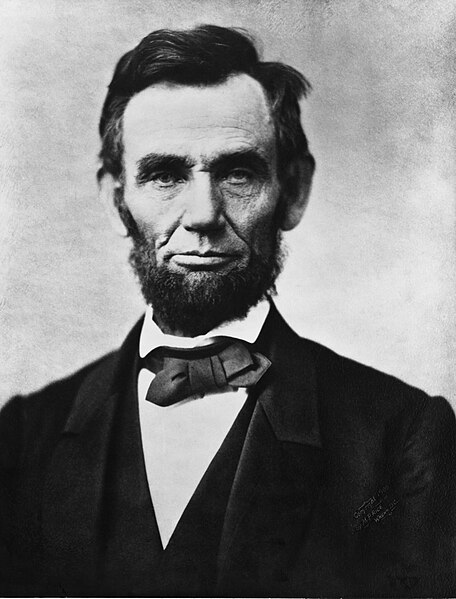The Mugwumps were Republican political activists in the United States who were intensely opposed to political corruption. They were never formally organized. Typically, they switched parties from the Republican Party by supporting Democratic candidate Grover Cleveland in the presidential election of 1884. They switched because they rejected the long history of corruption associated with Republican candidate James G. Blaine. In a close election, the Mugwumps claimed they made the difference in New York State and swung the election to Cleveland. The jocular word "mugwump", noted as early as 1832, is from Algonquian mugquomp, "important person, kingpin", implying that Mugwumps were "sanctimonious" or "holier-than-thou" in holding themselves aloof from party politics.

1884 cartoon by Bernhard Gillam in Puck magazine which ridicules James G. Blaine as the man tattooed with many indelible scandals. The fourth 'judge' from the right (seated) is Teddy Roosevelt. A parody of Phryne before the Areopagus, an 1861 painting by French artist Jean-Léon Gérôme
Many editors supported the cause, such as E.L. Godkin
A "bogus" cremation for the benefit of the "life-long Democrats" 1885 cartoon by Joseph Keppler from Puck magazine
History of the Republican Party (United States)
The Republican Party, also known as the GOP, is one of the two major political parties in the United States. It is the second-oldest extant political party in the United States after its main political rival, the Democratic Party.
Musical Fund Hall at 808 Locust Street in Center City Philadelphia, where the first Republican nominating convention for president and vice president was held from June 17 to 19, 1856
Abraham Lincoln, the first Republican President (1861–1865)
African-American members of the United States Senate and the United States House of Representatives: Sen. Hiram Revels (R-MS) and Reps. Benjamin Turner (R-AL), Robert DeLarge (R-SC), Josiah Walls (R-FL), Jefferson Long (R-GA), Joseph Rainey and Robert B. Elliott (R-SC), 1872
Ulysses S. Grant was the first Republican president to serve for two full terms (1869–1877)







